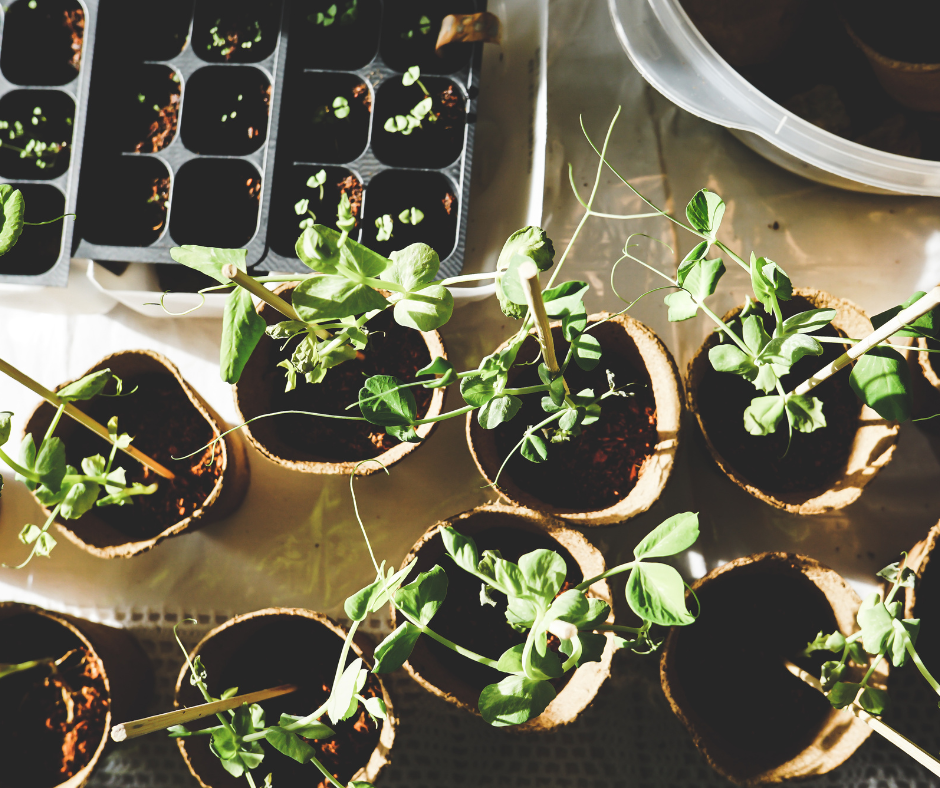The Health Benefits of Gardening: Cultivating Wellness from the Ground Up
Apr 17, 2024
Gardening isn't just about growing beautiful flowers or fresh vegetables — it's a therapeutic and health-boosting activity that can positively impact both body and mind. As we welcome the arrival of spring, it's the perfect time to dig into the dirt and discover the myriad ways gardening can contribute to our overall well-being.
Physical Health Benefits
1. Physical Activity: Gardening is a low-impact exercise that engages various muscle groups. Tasks such as digging, planting, and weeding can contribute to improved strength, flexibility, and endurance.
2. Vitamin D Production: Spending time outdoors in the sunlight while gardening helps our bodies produce vitamin D, crucial for bone health, immune function, and mood regulation.
3. Stress Reduction: Engaging in gardening activities has been shown to reduce levels of cortisol, the stress hormone. The combination of physical activity, fresh air, and connection with nature creates a calming effect.
4. Better Nutrition: Growing your own fruits and vegetables encourages a healthier diet. Freshly harvested produce is packed with nutrients and free from the pesticides often found in store-bought varieties.
5. Improved Immunity: Exposure to dirt and soil can actually strengthen the immune system. The diverse microbes in soil can boost our immunity and reduce the risk of allergies and autoimmune diseases.
Mental Health Benefits
1. Stress Relief and Mood Enhancement: Gardening has been linked to lower levels of depression and anxiety. The act of nurturing plants and watching them grow can be immensely rewarding and uplifting.
2. Mindfulness and Presence: Gardening encourages mindfulness as you focus on the task at hand. Being present in the moment, observing the plants, and tending to their needs promotes a sense of peace and mindfulness.
3. Sense of Accomplishment: Seeing the results of your efforts as plants flourish and bloom provides a sense of achievement and boosts self-esteem.
4. Cognitive Benefits: Gardening requires planning, problem-solving, and learning about plants' needs. These activities stimulate the brain and can help prevent cognitive decline.
5. Connection to Nature: In today's fast-paced world, gardening offers a valuable connection to the natural world. It reminds us of the cycles of life, the importance of patience, and our place in the ecosystem.
Tips for Starting Your Garden Journey
Start Small: If you're new to gardening, begin with a small plot or even container gardening. This allows you to learn and grow without feeling overwhelmed.
- Choose Plants Wisely: Consider your climate, available space, and the amount of sunlight your garden receives when selecting plants. Opt for varieties that are suited to your region.
- Make it a Family Affair: Gardening can be a wonderful family activity. Involve children in planting seeds, caring for plants, and harvesting. It's a great way to teach them about nature and healthy eating.
- Create a Relaxation Space: Designate a corner of your garden for relaxation. Whether it's a bench under a tree or a cozy nook surrounded by flowers, having a peaceful spot to unwind enhances the mental health benefits of gardening.
- Practice Sustainability: Consider eco-friendly gardening practices such as composting, using rainwater, and choosing native plants. Not only does this benefit the environment, but it also creates a healthier garden ecosystem.
Conclusion
Gardening is a holistic activity that nourishes both body and soul. Whether you have a sprawling backyard or a few pots on a balcony, the act of nurturing plants can bring immense joy and well-being. As we embrace the arrival of spring, let's take this opportunity to dig in the dirt, connect with nature, and reap the countless health benefits that gardening offers.
So, grab your trowel and seeds, and let's cultivate wellness from the ground up this spring!
Disclaimer:
Recent Post

Boosting Immunity During the Monsoon Season

The Sweet Benefits of Chocolate: A Delicious Path to Better Health

Skincare Tips for the Monsoon Season

Celebrating International Yoga Day: Embrace the Health Benefits of Yoga

Healthy and Refreshing Summer Recipes

Celebrating World Environment Day: A Call to Action for a Greener Future
_CAT_1717066221.png)
Staying Hydrated in the Summer: Essential Tips for Beating the Heat

Living Tobacco-Free: Your Journey to Health and Wellness

Tailored Exercise Routines for Achieving Your Fitness Goals

Unveiling the Healing Power of Mindfulness Meditation: How It Transforms Mental Health

